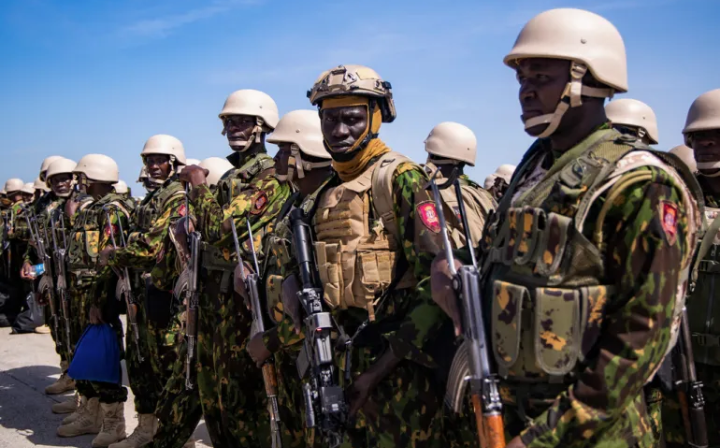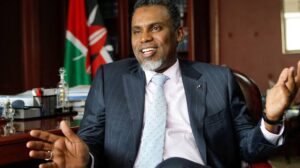The deployment of Kenyan police officers to Haiti has turned into a glaring example of government negligence and poor planning.
With 1,000 officers now stationed in the volatile Caribbean nation, reports indicate growing dissatisfaction among the force.
Many of the officers have threatened to resign, citing poor working conditions, lack of adequate support, and unclear operational goals.
The government, led by President William Ruto, is under intense criticism for ignoring domestic legal and logistical issues to pursue what critics label as a “vanity project” on the international stage.
The mission has been controversial from the beginning.
A Kenyan court had ruled the deployment unconstitutional, citing the lack of a reciprocal agreement between Kenya and Haiti.
However, the government proceeded, framing the initiative as a gesture of global leadership.
On the ground, the officers are reportedly overwhelmed.
They were sent to counter gangs controlling over 80% of Haiti’s capital, Port-au-Prince, under circumstances that many say reflect unpreparedness and disregard for their safety.
Reports from the field reveal that officers face dire conditions, including inadequate housing and a lack of protective equipment.
While President Ruto has praised their professionalism, the ground realities contradict his statements.
The officers are struggling with language barriers, unfamiliar terrain, and the sheer scale of gang violence.
Many feel abandoned, as promises of proper logistics and welfare have not materialized.
Adding to their frustration is the political pressure to stay beyond the initial mandate, with discussions underway to convert the operation into a full United Nations peacekeeping mission.
This potential extension has intensified grievances, as officers were neither consulted nor adequately compensated for their sacrifices.
The government has framed the mission as a humanitarian effort, but the truth appears more complex.
Critics allege that the deployment serves as a public relations exercise aimed at garnering international recognition rather than addressing Haiti’s deep-seated issues.
The $300 million pledged by the United States for the mission has also raised questions, as little of this funding seems to have benefited the Kenyan officers directly.
Observers argue that the government is more focused on impressing international partners than safeguarding the lives and dignity of its police force.
This deployment has exposed serious flaws in the government’s approach to both foreign policy and domestic governance.
It has also raised questions about resource allocation, with many Kenyans wondering why funds and manpower are being directed abroad while security challenges persist at home.
The threats of resignation from the officers could spell disaster for the mission, undermining Kenya’s international reputation and leaving Haiti’s security situation even more precarious.
Without urgent intervention, this mismanaged operation risks becoming a symbol of Kenya’s failure to prioritize its own people.





















Add Comment